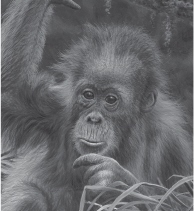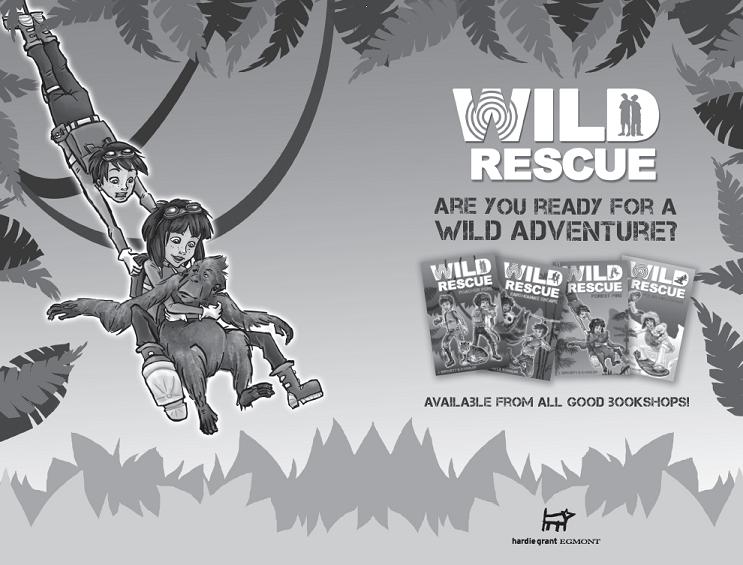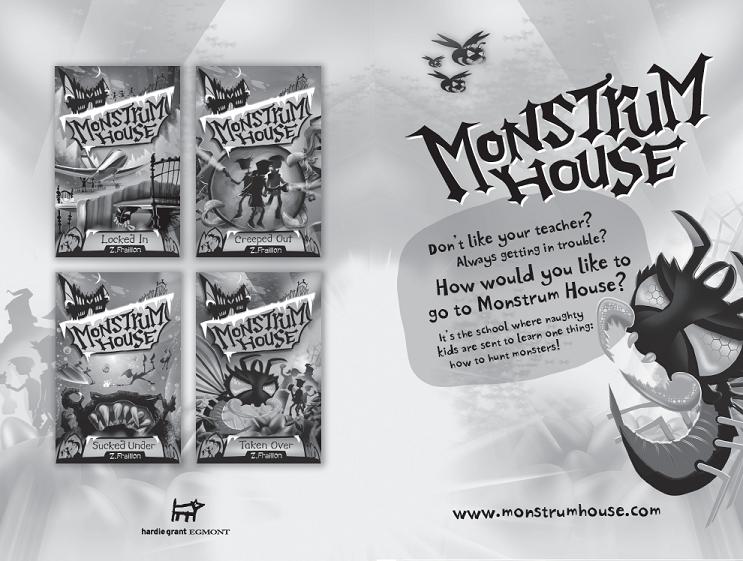Forest Fire (10 page)

Life span: about 45 years in the wild.
Oldest orang-utan recorded: 58 years old.

The name orang-utan is Malay and means “man of the forest”.
Weight: Male orang-utans are twice the size of females. In the wild males weigh between 80â100kg, but males in captivity can reach 140kg or more.
Females usually only have one baby at a time. The young stay with their mothers for longer than any other primates except humans. They are finally independent at about 7â8 years old.
STATUS: ENDANGERED
The organ-utan is included on the red list of the International Union for Conservation of Nature. Numbers of the Bornean orang-utan are decreasing, and the Sumatran orang-utan is classified as critically endangered.
Orang-utans are highly intelligent. They poke twigs into holes to catch insects, and use sticks to test the depth of water before entering it. Some use leaves as umbrellas, as gloves to protect their hands, or even as cushions in spiny trees!
THREATS
LOSS OF HABITAT
The biggest threat to orang-utans is the loss of their rainforest home. Tropical rainforests are being cut down for timber and the land is being cleared for oil palm plantations and mining. Orang-utans have lost 80 per cent of their habitat in the last 20 years! Forest fires, deliberate and accidental, also destroy their habitat.
KILLED AS PESTS
Orang-utans are occasionally killed as pests by plantation owners and farmers.
LOW REPRODUCTION
In the wild, a female orang-utan only gives birth every 7â8 years.
She usually has up to four surviving offspring in total.
PREDATORS
Humans, clouded leopards, tigers and possibly the Asian hunting dog are all dangers to orang-utans.
THE ILLEGAL PET TRADE
Mother orang-utans are killed and their infants sold as pets.
It's not all bad news!
In spring 2009 scientists discovered a large population of orang-utans, possibly more than 2,000, in the remote jungles of Borneo. Conservationists now need to work with local authorities to protect the area. On reserves like the Tanjung Puting National Park the orang-utan can live and breed in relative safety. Some (non-government) conservation groups in Borneo are talking with oil palm companies about schemes in which land will be set aside for privately owned nature reserves.



